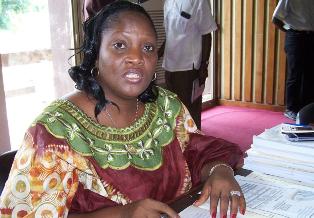Ebola: Joint-Border Survillance Program Welcoming, but…..
Since the World Health Organization or WHO declared Liberia- one of the worst hit Ebola countries in West Africa, Ebola-free on May 9, 2015, the country continues to enjoy some atmosphere of relief from any threat of the deadly Ebola virus disease.
But while cautiously observing the end of the fight against Ebola, the disease is still present in neighboring Guinea- from where it spread to Sierra Leone and Liberia, and Sierra Leone- still posing some threats to Liberia.
Considering the common porous borders the three countries share at all levels, authorities of are working on a regional program wherein the three countries will combine some efforts in a post-Ebola recovery effort- particularly for exchanges of talents and experiences or “a joint border surveillance facility.”
The foregoing was made known by President Ellen Johnson-Sirleaf recently when she received the letters of credence of the British Ambassador to Liberia, Mr. David Belgrove.
According President Sirleaf, in addition to the border surveillance program, each of the states are rebuilding their respective national health care system, appreciating the support of international partners in ensuring that infection control and responses were part of the health systems of the three countries.
As disclosed by the Liberian President, while infection control and responses may be good and very welcoming, especially for our health systems, it is equally important and very necessary for the three countries to ensure efficiency and effectiveness.
Even though we agree with the President that the problem in Liberia now is the scarcity of health professionals- though she said training and recruitment of doctors were in the interim to help strengthen the system, the issue of employment of health workers, especially professional nurses, mid-wives and Physician Assistants remains very sticky. It is no secret that at many public hospitals and clinics, including the John F, Kennedy Memorial Hospital, James David Hospital and Redemption Hospital or even the very Ministry of Health, most of these health workers take “blood test”, i.e, they go through difficulties to seek employment, but to no avail only because they are not favoured for selection due to some selfish reasons, despite their qualification and years of experience.
And so, when Madam President spoke of scarcity of professionals, one of the main factors is the above mentioned.
[bsa_pro_ad_space id=1]
If and only if Madam President would ensure a covert instigation and monitoring mechanism for the recruitment processes at the Health Ministry and public Hospitals, especially in Monrovia and its environs, the issue of scarcity of professional health workers would be addressed.
As we enter into our post-Ebola recovery era, the foregoing issue, as well as better salaries which the Sirleaf Administration has already started, attractive incentives and benefits, the provision of drugs and equipment (including ambulances) to hospitals and clinics across the country must be the hallmark of this much talk-about post-Ebola recovery- mainly the rebuilding of the our ravaged national healthcare system.
Regarding the joint-border surveillance facility as disclosed by President Sirleaf, we can only hope for the better in terms of the practical necessities- staff deployment and equipment at the borders to track ‘signals’ or threats of Ebola.
“But we want to make sure that the other two countries are also… and I’m very pleased that they too are beginning to show great improvement, and they too are looking forward to the countdown that will lead them also to Ebola free,” said President Ellen Johnson-Sirleaf recently.




















